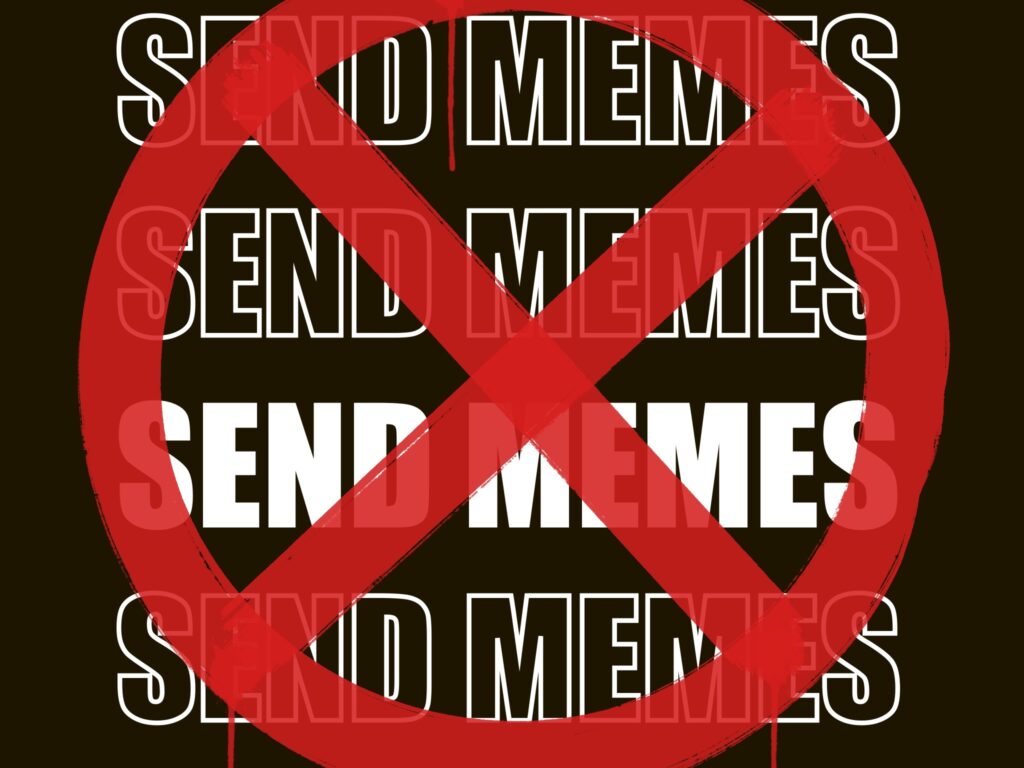
Advertising Art Brands
Use of Memes as Marketing Tools: Cool, Cringe, or Copyright Infringement?
Are memes exempt from copyright infringement under fair dealing
READ TIME:
2 mins

I love a meme as much as the next person.
The internet's inside joke. A mash-up of images, text and humour that spread quick in this fast-moving, digital world.
The EU Meme Ban
But imagine a world where memes were banned.
That almost happened in 2019, when the EU proposed Article 13 (now Article 17).
The bill, dubbed the 'EU meme ban', required platforms to block anything that might infringe on copyright.
Since most memes borrow from others, it felt like a death sentence for internet humour.
In the end, the EU did not ban memes.
Instead it made room for memes to survive, under:
- quotations, criticism, review;
- caricature, parody or pastiche
In other words, 'fair dealing' (‘fair use’ in the US) which is a defence to copyright infringement.
What's a Meme, Anyway?
The word 'meme' originates from the ancient Greek word 'mīmēma', which translates as 'that which is imitated'.
Essentially, memes are derivative works created through the use of (largely) copyright protected materials.
Usually a combination of images, video, or art with overlaid text used to parody or comment on relevant events. The change of context of the work is what usually makes it relevant and/or comedic.
This assembly makes memes a legal headache from an ownership and infringement point of view. Because you are borrowing from others.
Content in the public domain does not mean it is free to use
What is Fair Dealing?
UK legislation does not specifically define 'fair dealing'- and in the case of memes 'caricature', 'parody' or 'pastiche'.
Some factors have been identified by the courts as relevant in deciding whether a particular use is 'fair', but as the UK Intellectual Property Office (IPO) states: it will always be a matter of fact, degree and impression in each case.
But what is clear is that Purpose and Proportion play key roles.
If you are using use a meme as a marketing tool to sell or promote something, it is less likely to count as fair dealing - especially if the original material isn't changed much.
Memes for Brands: A Warning
With the global appeal of memes, big brands have capitalised on this cost effective, attention grabbing model of advertising products and services.
Gucci famously launched their '#TFWGucci' meme campaign in 2017 which at the time was groundbreaking in luxury fashion.
However, creators of memes just like photographers or artists, are starting to protect their work and demand credit or compensation when used without permission. This is usually through 'copyright enforcement' agencies that trawl the internet for unauthorised use.
Brands using memes, while a cool (or cringe) marketing strategy, risk litigation if they don't navigate copyright issues carefully.
Thorough clearance is essential to avoid a cease & desist landing at the doorstep.
That's the truth. It's the same as it ever was.
By Jack Jones
Published October 2024